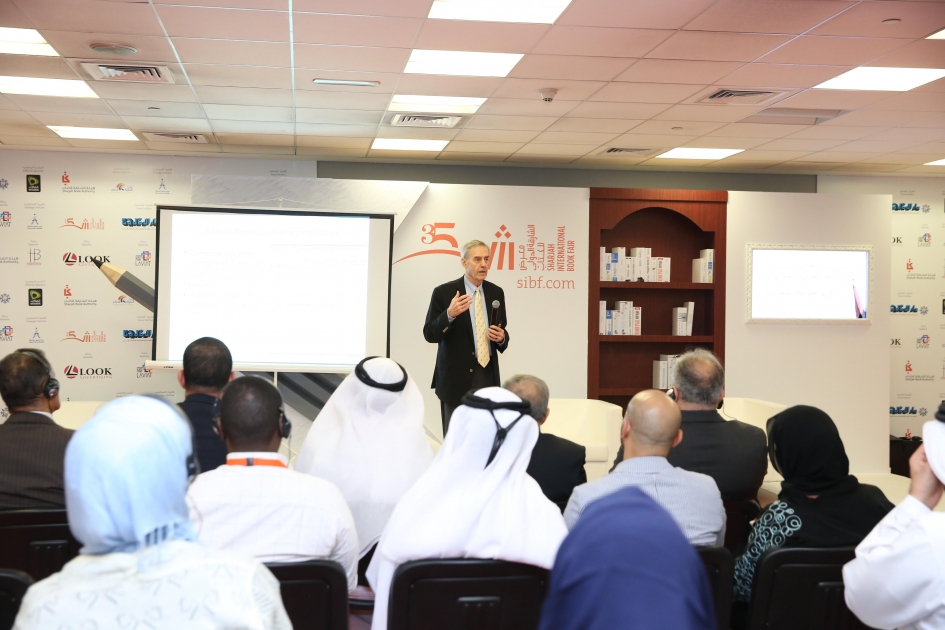
‘1001 Titles’ Brings International Digital Publishing Expertise to the Local Market
The ‘1001 Titles’ initiative brought together publishers under the programme at the Sharjah International Book Fair (SIBF) 2016 to learn about the tools and methodologies will assist them in achieving their business targets while simultaneously promoting the rich Arabic culture throughout the Middle East and
western worlds.
The Knowledge without Borders team flew in American expert, Robert E. Baensch, President, Baensch International Group Ltd. and Publishing Consultant, to educate the audience on best practices and share valuable knowledge of the advancements in the field.
He began his address by acknowledging the stiff challenges Arab publishers face today in increasing the demand for their product in a market represented by 87% expats and massive penetration of digital technologies.
“As publishers it is imperative that we quantify the rapid changes being experienced by our industry, changes being driven by urbanisation, affluence of a new and emerging class of customers, and of course the penetration of mobile devices. Eighty-two percent people in the Middle East have access to mobile phones, which is a big distraction from reading a book. People’s attention spans are shortening as we speak, and the need of the hour is to make reading relevant and attractive for people,” Baensch commented while making his presentation.
“The ratio of digital readers to print readers is increasing, which is reflected by the bankruptcy of several newspapers and magazine companies in the US. Today, we compete not against other publishers, but against multimedia vying fiercely for the consumer’s time and attention. This is our real challenge in the next five years, because we as publishers need to provide the consumer information about books and other new materials on platforms of their choice,” he added.
He stressed on the need to use digital and online marketing platforms for sales and promotions, highlighting content marketing as the most effective digital tool in the promotion of books, which gives prospective buyers access to intros, sample chapters, illustrations and excerpts. Why?
“Because a printed catalogue of book titles will not provide a publisher with vital information on consumer behaviour, purchasing trends, etc., while the metric systems devised in online marketing and buying platforms will track customer traffic and activity, record purchases, and even recommend books to customers,” said Baensch.
Reflecting on the changing roles of a publisher in the digital context, he cited examples of new job roles like social media specialist, digital marketing managers that were not heard of a few years ago. Baensch reminded the session’s participants to be proactive instead of reactive in adopting new online marketing practices, which will help them create pathways to broaden their customer outreach.
His training session was followed by Q&As, in which participants seeked business-specific advice and recommendations.
To conclude, he stressed that while publishers need to quickly adapt to the changing market trends to keep themselves relevant in a rapidly transforming industry, the only way to guarantee long-term success is when the industry basics of defining the customer and distribution channels, managing the added value chain effectively, and most importantly, upholding quality content are followed to a T.
Launched in February 2016 by Knowledge without Borders (KwB), under the direction of Her Highness Sheikha Bodour Bint Sultan Al Qasimi, Head of the organising committee of KwB, 1001 Titles aims to enrich the UAE’s intellectual output and ensure the sustainability of its publishing sector, as well as those other countries. It also aims to support Emirati authors and publishing houses by working to ensure that they can successfully compete in the industry in the face of its many challenges.



























